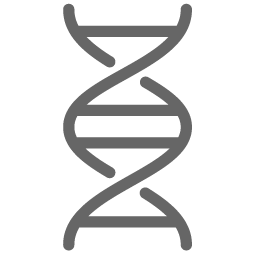Genetic risk assessment
All patients with breast cancer should be assessed at or around the time of diagnosis for familial and genetic risk factors as indicated in current eviQ guidelines, which include relevant pathogenic variants in adult blood relatives, gender, ancestry, breast cancer characteristics, and personal and family cancer history.
It is recommended that primary care clinicians (i) should assess the patient’s cancer family history; and (ii) should offer genetic counselling if potential hereditary risk factors are suspected (e.g., women with a strong family history of cancer [breast, colon, endometrial] or age 60 y or younger with triple-negative breast cancer (Level of evidence – 2A)
Women at high risk for familial breast cancer syndromes should be referred for genetic counselling in accordance with clinical guidelines recommended by the US Preventive Services Task Force. Criteria to recommend referral include the following: Ashkenazi Jewish heritage; history of ovarian cancer at any age in the patient or any first- or second-degree relatives; any first-degree relative with a history of breast cancer diagnosed before the age of 50 yr; two or more first- or second-degree relatives diagnosed with breast cancer at any age; patient or relative with diagnosis of bilateral breast
Appropriate to offer genetic counselling to women with a high familial risk at or around the time they are diagnosed, with a view to genetic testing to inform decision-making about treatment
Useful Links
How this guidance was developed
This recommendation was adapted from two source guidelines: the ASCO 2013 (US) and the ACS/ASCO 2016 guidelines (US). The ACS/ASCO (2016) source recommendation is based on a systematic review of the evidence conducted to April 2015 and the ASCO (2013) source recommendation is based on a systematic review of the evidence conducted to June 2012. Neither were graded by the source guideline authors. The source recommendations were merged and then separated (see recommendation 'Genetic counselling and testing – Referral'). Reference to the eviQ guidelines was added as they are current and relevant to the Australian context. Details about the timing of risk assessment were specifically added.
This recommendation aligns with the 2017 Cancer Australia Statement – Influencing best practice in breast cancer: Practice 1.
Genetic risk assessment
All patients with breast cancer should be assessed at or around the time of diagnosis for familial and genetic risk factors as indicated in current eviQ guidelines, which include relevant pathogenic variants in adult blood relatives, gender, ancestry, breast cancer characteristics, and personal and family cancer history.
Useful Links
This recommendation was adapted from two source guidelines: the ASCO 2013 (US) and the ACS/ASCO 2016 guidelines (US). The ACS/ASCO (2016) source recommendation is based on a systematic review of the evidence conducted to April 2015 and the ASCO (2013) source recommendation is based on a systematic review of the evidence conducted to June 2012. Neither were graded by the source guideline authors. The source recommendations were merged and then separated (see recommendation 'Genetic counselling and testing – Referral'). Reference to the eviQ guidelines was added as they are current and relevant to the Australian context. Details about the timing of risk assessment were specifically added.
This recommendation aligns with the 2017 Cancer Australia Statement – Influencing best practice in breast cancer: Practice 1.


